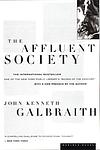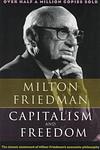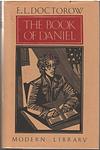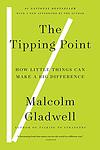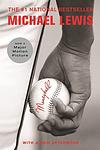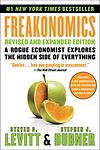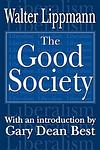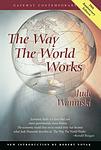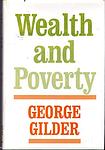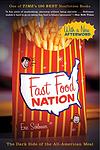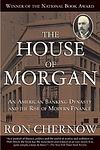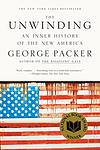The Greatest American "Business & Money" Books of All Time
Click to learn how this list is calculated.
This list represents a comprehensive and trusted collection of the greatest books. Developed through a specialized algorithm, it brings together 300 'best of' book lists to form a definitive guide to the world's most acclaimed books. For those interested in how these books are chosen, additional details can be found on the rankings page.
Genres
The "Business & Money" category of books encompasses a wide range of topics related to finance, economics, entrepreneurship, and management. These books provide insights and strategies for individuals and organizations to improve their financial well-being, grow their businesses, and achieve success in the competitive world of commerce. From personal finance and investing to marketing and leadership, the books in this category offer practical advice, case studies, and real-world examples to help readers navigate the complex landscape of business and money.
Countries
Date Range
Reading Statistics
Click the button below to see how many of these books you've read!
Download
If you're interested in downloading this list as a CSV file for use in a spreadsheet application, you can easily do so by clicking the button below. Please note that to ensure a manageable file size and faster download, the CSV will include details for only the first 500 books.
Download-
1. The Affluent Society by John Kenneth Galbraith
"The Affluent Society" is a socio-economic critique that challenges the conventional wisdom of the time that economic growth leads to public wealth. The author argues that in reality, the increasing wealth of the United States has led to greater private affluence but public squalor due to inadequate investment in public goods and services. He proposes that society should strive for sustainable development rather than unlimited material advancement. The book has been influential in economic thought, particularly in the areas of public policy and consumer behavior.
-
2. Capitalism and Freedom by Milton Friedman
This book explores the role of competitive capitalism - the organization of the bulk of economic activity through private enterprise operating in a free market - as both a device for achieving economic freedom and a necessary condition for political freedom. The author further examines how freedom could be preserved in a society where the roles and importance of government are ever expanding, and presents his view on topics such as monetary policy, fiscal policy, education, discrimination, and the alleviation of poverty.
-
3. The Book of Daniel by E. L. Doctorow
"The Book of Daniel" is a semi-fictional novel that explores the lives of the Isaacson family, specifically focusing on the children, Daniel and Susan, after their parents, accused of being Communists, are executed. The narrative is a combination of historical fiction and a political commentary, providing a deep exploration of the Red Scare in the United States during the Cold War era. The novel is a critical examination of social, political, and familial dynamics in a time of national fear and paranoia.
-
4. The Theory of the Leisure Class by Thorstein Veblen
This book is a socio-economic critique of American consumerism and the upper class, written in the late 19th century. The author argues that the wealthy engage in conspicuous consumption and leisure to display their wealth and maintain their social status. He introduces the concept of "pecuniary emulation," suggesting that the lower classes imitate the consumption patterns of those above them, leading to a wasteful and inefficient economy. The book is a seminal work in the field of economics, providing a satirical yet insightful look into the behavior of the affluent.
-
5. The Tipping Point by Malcolm Gladwell
This book explores the concept of "tipping points," or the specific moment when an idea, trend, or social behavior crosses a threshold and spreads like wildfire. It delves into the science behind epidemics, both in terms of diseases and ideas, and dissects the factors that can cause a sudden shift in public consciousness. The author uses various case studies, from the sudden popularity of certain shoes to the decrease in New York City's crime rate, to illustrate these concepts.
-
6. The History of the Standard Oil Company by Ida Tarbell
This book provides an in-depth investigation into the rise of the Standard Oil Company, revealing its unethical and monopolistic business practices. It chronicles the company's growth from a small oil refinery into a dominant force in the American economy, led by a cunning and ruthless businessman. The narrative exposes the company's tactics of crushing competition, exploiting workers, and manipulating prices, which eventually led to public outcry and legal action. This groundbreaking work contributed significantly to the breakup of Standard Oil and the establishment of anti-trust laws in the United States.
-
7. Moneyball by Michael M. Lewis
This book tells the story of a baseball team manager who uses statistical analysis to assemble a competitive team on a tight budget. Despite facing criticism and skepticism, his unconventional methods prove successful, challenging traditional ideas about the value of players and the nature of the game. The book highlights the importance of data-driven decision making in sports, and its potential to disrupt established norms and practices.
-
8. Nickel And Dimed by Barbara Ehrenreich
The book is a firsthand journalistic account of the author's experiment to survive on minimum wage jobs in America. She gives up her middle-class life to understand the reality of low-wage workers, working as a waitress, a hotel maid, a cleaning woman, a nursing home aide, and a retail chain employee. The book reveals the harsh and often overlooked conditions of the working poor, highlighting the struggle to afford even basic necessities, the lack of job security, and the physical toll of such work.
-
9. Kitchen Confidential by Anthony Bourdain
The book is an insider's account of the culinary world, revealing the harsh realities of restaurant kitchens. The author, a professional chef, shares his personal experiences, the good and the bad, in a brutally honest and witty manner. He provides an unvarnished look at the industry, from the chaotic kitchen environment and the high-pressure service, to the eccentric characters he has worked with. The book also includes his reflections on food culture, cooking techniques, and his own journey in the culinary field.
-
10. Freakonomics by Steven D. Levitt, Stephen J. Dubner
This book explores the hidden side of everything, debunking conventional wisdom and revealing surprising connections between seemingly unrelated things. It uses economic theories to explain social phenomena such as the decrease in crime rates in the 1990s, the impact of a person's name on their life outcomes, and the inner workings of drug gangs. By using data and statistics, it challenges the way people think about the world and encourages them to question the accepted truths in society.
-
11. The Economy of Cities by Jane Jacobs
"The Economy of Cities" explores the concept of urbanization and its impact on economic development. The author argues that cities are the primary drivers of economic growth and innovation, challenging the traditional belief that rural agriculture is the foundation of economic development. The book delves into the history of city development, the role of cities in fostering innovation, and how urban economies evolve and adapt over time. It further discusses the importance of diversity and small-scale entrepreneurship in creating vibrant, sustainable cities.
-
12. The Good Society by Walter Lippmann
"The Good Society" is a critical examination of the economic and political systems of the 20th century, with a focus on capitalism and socialism. The author argues that both systems have inherent flaws and suggests a third way, a form of democratic socialism, which would combine the best elements of both systems. The book offers a comprehensive analysis of the economic, social, and political structures of society, and presents a vision for a more equitable and just society.
-
13. The Way the World Works by Jude Wanniski
"The Way the World Works" is an in-depth exploration of political economy, presenting an argument for supply-side economics. The author suggests that economic growth is primarily influenced by the reduction of barriers in production, including lower tax rates. The book presents historical examples to support this theory, arguing that government intervention often leads to economic instability. This text is considered a fundamental work in supply-side economics and has had a significant influence on economic policy discussions.
-
14. Wealth and Poverty by George Gilder
"Wealth and Poverty" is an influential exploration of the economic and social theories that drive the wealth distribution in the United States. The book argues that supply-side economics and capitalism are the most effective systems for creating wealth and reducing poverty. It criticizes welfare programs and other forms of government intervention, asserting that they discourage individual initiative and are counterproductive in the long run. The book also discusses the moral and religious implications of wealth and poverty, emphasizing the importance of values such as discipline and the work ethic.
-
15. A Theory Of The Consumption Function by Milton Friedman
This book presents a groundbreaking study of the consumption patterns of individuals and households. The author challenges the traditional Keynesian consumption function which posits that individuals and households adjust their consumption spending in response to changes in income. Instead, the author proposes the "Permanent Income Hypothesis," asserting that consumers' spending habits are determined not by current income but by their longer-term income expectations. This influential theory has had a significant impact on economic policy and remains a cornerstone of macroeconomic theory.
-
16. The Engineering of Consent by Edward Bernays
The book is an exploration of the theory and practice of public relations. It discusses how the manipulation of public opinion is an essential part of democracy. The author argues that professional public relations counsel, understanding the social science and psychology, can help to shape and sway public opinion. By using these techniques, the public can be led in a certain direction for the benefit of the client, whether that client is a business or a political candidate.
-
17. Theory of Games and Economic Behavior by John Von Neumann
This book is a groundbreaking work that applies mathematical methods to the study of economic behavior. It introduces the theory of games, a mathematical framework for analyzing conflict and cooperation between intelligent rational decision-makers, and its implications for economic behavior. The book covers topics such as zero-sum games, utility theory, and the minimax theorem, and it has had a profound impact on economics, political science, and other social sciences.
-
18. Fast Food Nation by Eric Schlosser
This book is an in-depth exploration of the fast food industry in America, examining its history, business practices, and impact on society. The author investigates the industry's influence on America's economy, health, and culture, revealing disturbing facts about the production process, the exploitation of workers, and the health risks associated with fast food consumption. The book serves as a critique of the fast food industry and its detrimental effects on American society.
-
19. The House of Morgan by Ron Chernow
"The House of Morgan" is a comprehensive history of the Morgan banking dynasty, tracing its origins from the 19th century to its present-day status. The book explores the family's influence on American and international finance, politics, and society, highlighting key figures and events. It provides an in-depth look at the workings of high finance and the power dynamics within the Morgan family, offering insights into the world of banking and the people who shaped it.
-
20. Shadow & Claw by Gene Wolfe
"Shadow & Claw" is a science fiction novel set in a distant future where the Earth's sun is dying out. The protagonist is a highly skilled torturer belonging to a guild, who is exiled for showing mercy to a prisoner. The narrative follows his journey through a world filled with strange creatures, ancient technologies, and complex political machinations. The protagonist, armed with a sword that can cut through any material, must navigate this world, dealing with love, loss, and betrayal, while also questioning the nature of his own reality.
-
21. The Prize: The Epic Quest for Oil, Money, and Power by Daniel Yergin
"The Prize: The Epic Quest for Oil, Money, and Power" is a comprehensive history of the global oil industry, tracing its development from the drilling of the first well in Pennsylvania to the oil crisis of the 1970s and its aftermath. The book examines the key players, political conflicts, and technological advancements that have shaped the industry, and explores the profound impact of oil on the global economy and geopolitics. It also discusses the environmental and social challenges associated with oil production and consumption.
-
22. The Frugal Superpower: America's Global Leadership in a Cash-Strapped Era by Michael Mandelbaum
This book explores the impact of America's economic constraints on its global leadership role. The author argues that the growing national debt and the need to focus on domestic issues will force the United States to reevaluate and limit its international commitments. The book also examines potential scenarios for the world order if America withdraws from its global leadership role, ranging from a more multipolar system to the rise of more aggressive powers. The author emphasizes the need for careful management of this transition to avoid instability and conflict.
-
23. Lords of Finance: The Bankers Who Broke the World by Liaquat Ahamed
The book offers an in-depth analysis of the events leading up to the Great Depression from the perspective of four central bankers from the United States, Britain, France, and Germany. The author argues that these individuals, through their decision-making and policies, inadvertently contributed to the economic turmoil of the 1930s. The book provides a historical examination of the global financial system, monetary policy, and the role of central banks, ultimately highlighting the human factor in economic catastrophes.
-
24. The Wisdom Of Crowds by James Surowiecki
This book explores the concept that large groups of people are smarter than an elite few, no matter how brilliant, and are better at solving problems, fostering innovation, coming to wise decisions, even predicting the future. The author delves into a wide range of disciplines, including popular culture, psychology, and behavioral economics to demonstrate how this concept works in the real world. The book also examines how group decisions can go wrong and provides insights on how to prevent these errors.
-
25. The Unwinding: An Inner History of the New America by George Packer
The book offers an in-depth look at the social, political, and economic transformations that have occurred in America over the past three decades. It presents a series of personal narratives from various individuals, including a factory worker, a Silicon Valley billionaire, and a Washington insider, among others. These stories serve to illustrate the larger trends and changes that have taken place in the country, such as deindustrialization, the rise of technology, and the influence of money in politics, and how these shifts have affected the American dream.
Reading Statistics
Click the button below to see how many of these books you've read!
Download
If you're interested in downloading this list as a CSV file for use in a spreadsheet application, you can easily do so by clicking the button below. Please note that to ensure a manageable file size and faster download, the CSV will include details for only the first 500 books.
Download